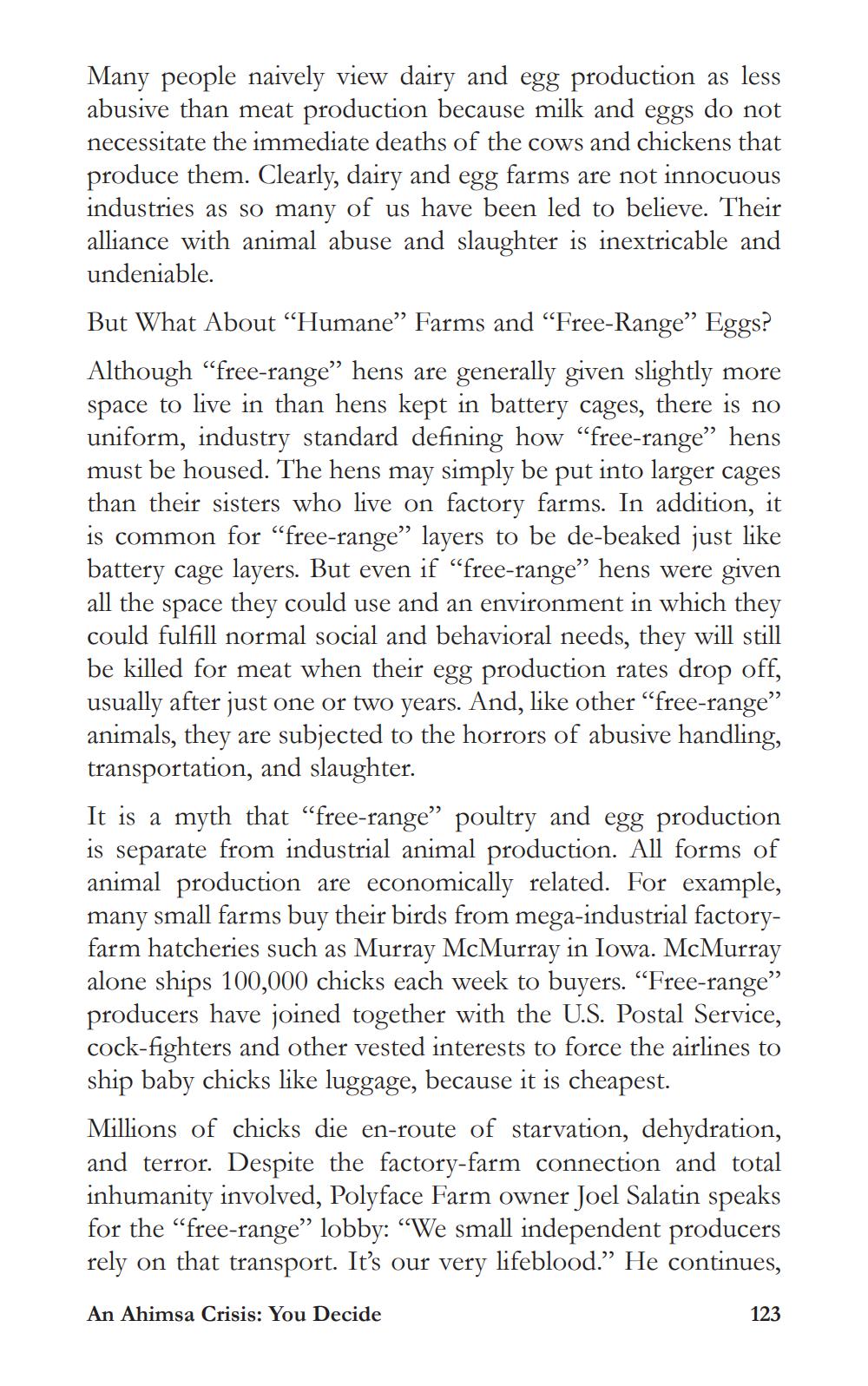________________
Many people naively view dairy and egg production as less abusive than meat production because milk and eggs do not necessitate the immediate deaths of the cows and chickens that produce them. Clearly, dairy and egg farms are not innocuous industries as so many of us have been led to believe. Their alliance with animal abuse and slaughter is inextricable and undeniable. But What About “Humane” Farms and “Free-Range” Eggs?
Although “free-range” hens are generally given slightly more space to live in than hens kept in battery cages, there is no uniform, industry standard defining how “free-range” hens must be housed. The hens may simply be put into larger cages than their sisters who live on factory farms. In addition, it is common for “free-range” layers to be de-beaked just like battery cage layers. But even if “free-range” hens were given all the space they could use and an environment in which they could fulfill normal social and behavioral needs, they will still be killed for meat when their egg production rates drop off, usually after just one or two years. And, like other “free-range” animals, they are subjected to the horrors of abusive handling, transportation, and slaughter. It is a myth that “free-range” poultry and egg production is separate from industrial animal production. All forms of animal production are economically related. For example, many small farms buy their birds from mega-industrial factoryfarm hatcheries such as Murray McMurray in Iowa. McMurray alone ships 100,000 chicks each week to buyers. “Free-range” producers have joined together with the U.S. Postal Service, cock-fighters and other vested interests to force the airlines to ship baby chicks like luggage, because it is cheapest. Millions of chicks die en-route of starvation, dehydration, and terror. Despite the factory-farm connection and total inhumanity involved, Polyface Farm owner Joel Salatin speaks for the “free-range” lobby: “We small independent producers rely on that transport. It's our very lifeblood.” He continues,
An Ahimsa Crisis: You Decide
123




